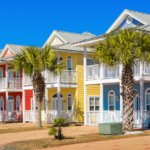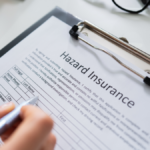If you own a home, you’re going to have homeowners insurance, there’s no way around it. It’s just one of those necessary evils that come with owning your own place and, as the cost of goods and services fluctuate over the years, you may find yourself either over or under-insured for your residence.
Being overinsured costs you money, while being underinsured can be a disaster if your home is destroyed in a fire, quake, or flood. So, what can you do about it?
We’re glad you asked. Below, we have compiled a list of steps you can take to help lower your premium and make sure you’ve got the coverage you need:
Shop around
Ensure you’re paying the lowest rate for the best coverage by shopping around for insurance. This way, you can compare the rates offered by your current insurance provider with those of other providers so you don’t skip over any money-saving opportunities.
Don’t have the time? We’ve got you. Guided Solutions will do the insurance shopping for you. Just give us a little info and we’ll compare policies and coverage for you. Then we’ll present you with the best options and help you secure your new policy, all at no cost to you! Request your home insurance quotes now.
Raise your deductible
As with auto insurance, raising your deductible can lower your insurance premiums. Of course, this means you’ll pay more out of pocket when filing a claim, but if you raise your deductible from $500 to $1,000, you may save as much as 25% on your premiums. Over time, those savings can really add up!
Make sure you read your policy if you live in a disaster-prone area, as some insurers may have separate deductibles for certain kinds of events (or maybe even separate policies, like earthquake insurance in California).
Only insure for the rebuilding costs of your home
A common mistake homeowners make is buying insurance based on the price or total property value of their home, including the land. If you need to rebuild your house, the land’s value stays the same. In other words, it won’t cost you the full property value to rebuild your home.
To avoid overbuying, research the estimated cost it would take to rebuild your home minus the land. Use that as your dollar amount when buying insurance.
Bundle your home and auto policies
Using the same insurance company for your home, auto, and liability coverage could save you money. Just make sure to compare the bundle price versus the cost of purchasing separate policies from different insurers.
We’ve helped customers save up to $1200 a year by bundling their home & auto insurance. Want to see how much we could save you? Get started now!
Beef up your home security
- Got a smoke detector, burglar alarm, or deadbolt locks? If so, your insurance carrier will likely offer a small discount for those.
- Adding a sprinkler system and fire and burglar alarms that dial into the police, fire, or professional monitoring service can save you more. They’re not cheap, and not all systems may qualify, so double-check with your carrier.
Increase your home’s disaster resistance
- Make sure your land is graded to have water flow away from your home.
- Keep brush cut back from around the house.
- Add storm shutters, and reinforce or strengthen your roofing materials.
These may or may not help your insurance premiums, but if they can eliminate or reduce potential damage, that’s still money saved in the long run.
Review your coverage annually
You don’t want to spend money for coverage you don’t need, but you also don’t want to be underinsured in the event of a loss. Make sure new major purchases or additions to your home are accounted for in your policy.
Get separate business insurance
If you run a business out of your home, make sure you discuss this with your agent or company representative, as most homeowner policies may cover a limited amount of business equipment but won’t cover business liability. Due to this, you may need a separate business insurance policy.
Swap that government plan for private insurance
High-risk areas subject to floods, high crime, coastal storms, and other regular calamities may have government insurance plans available for purchase, but they may not be the best option.
Shop the government policy against one from the private insurance sector to see if you can save money, get better coverage, or both.
Stay with the same insurer
Some carriers may offer discounts to long-term policyholders. Just make sure you periodically compare your current coverage and premium to other companies and policies. After a time, it’s easy to ‘set it and forget it’ and miss out on potential savings with other companies.
Consider the cost of insurance when house shopping
Many factors affect the cost of home insurance, like living in a community with a professional versus volunteer fire department or having a brick home in storm-prone areas. It’s important to understand these little nuances before signing on the dotted line.
Look at the claim history
A Comprehensive Loss Underwriting Exchange (CLUE) report on the home you’re considering can give you the claim history or information on possible problems the house may have.
Factor in the potential for extra costs
Flood and earthquake coverage aren’t normally covered by standard policies, so if you live in a disaster-prone area you will have to purchase separate policies. FEMA’s website has information on flood insurance and the California Earthquake Authority for quake insurance in the Golden State.










